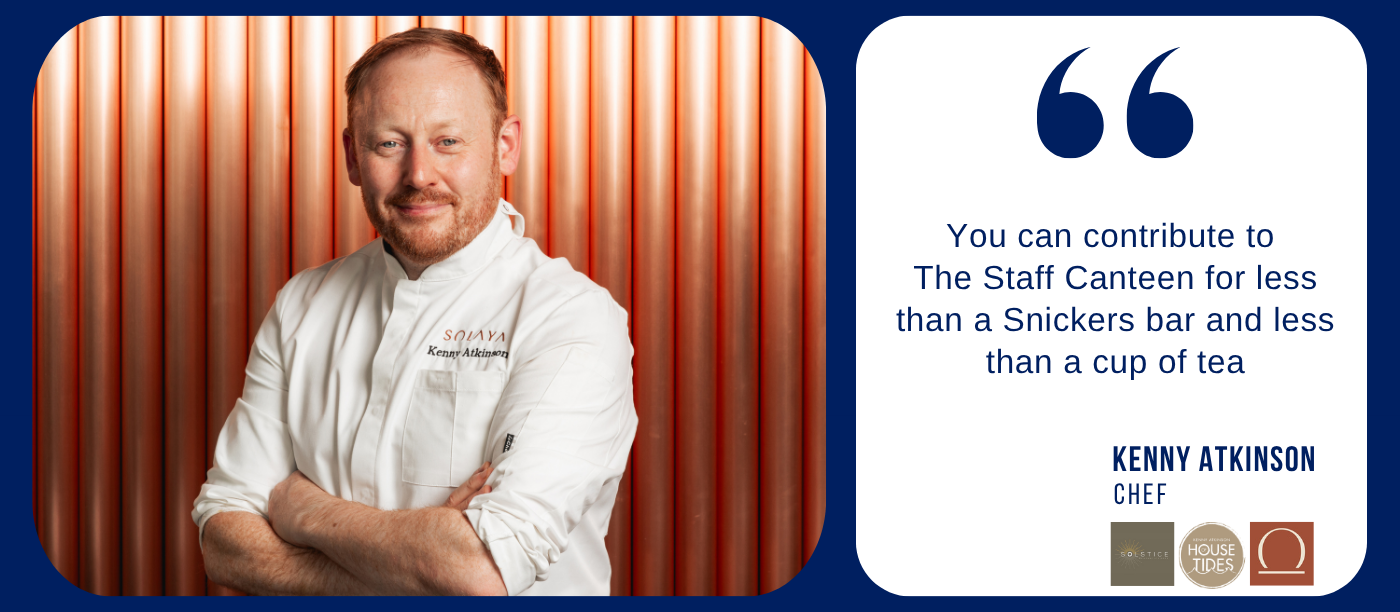This week, we asked you, hospitality workers, whether you feel like you're getting the support you need to deal with issues affecting your mental health. An overwhelming majority - 80 percent - came back to us and said that no, you're not.
On Wednesday, a new charity, Hospitality Health, was launched in Scotland. Complementing the work being done by Hospitality Action across the UK, the group hopes to help tackle issues affecting hospitality staff - mental illness, but also addictions and coping with loss - and by extension, the effects these problems have on business owners and managers.
We spoke to chefs Scott Smith, Dean Banks, Matthew Whitfield and Hospitality Health’s founder and Glasgow College Dean, Gordon McIntyre, to discuss why mental illness is such an endemic problem in the hospitality industry, and what should be done to address it.
Tough working conditions are an indisputable factor in triggering mental health issues in the industry. Staff often work long, antisocial hours, and must endure highly stressful conditions. This applies to chefs and front of house staff: the pressures may be different, but can have equally devastating effects.
All of this is made worse by sleep deprivation, and, the more fame and recognition a restaurant gets, the more its staff has to face criticism.
Most have only one, or two days off a week, and in most cases, these are weekdays, and rarely in a row.
What’s more, the old tradition of taking difficulty in one’s stride lives on: the 'get your head down, toughen up and get on with it' approach has been the way ever since Escoffier’s military-style code of conduct set the standard for kitchens around the world.
People are left with a fear of being stigmatised and bullied for speaking out, especially in male-dominated kitchens, where the archetype of masculinity lingers on.
To make things worse, mental illness can be caused by more than just working conditions, and rarely manifests itself in isolation. Alcoholism, drug and gambling addictions are rife within the industry.
While employers have most often been employees themselves, even if they do have compassion for their staff, they are rarely trained counsellors.
And, as Fhior chef patron Scott Smith remarked, business owners may have their own constraints to worry about; if they are already operating on a skeleton budget, paying sick leave might not be an option. "It's a horrible thing to have to think about, but it can really have an effect, especially on small businesses," he said.
Some, like Gordon McIntyre and Dean Banks, Masterchef: The Professionals 2018 finalist, think that the issue is perhaps an indication that employees are less resilient than previous generations, and less able to deal with the stress and difficulties of the job.
Gordon said that back when he was training to be a chef, things were different.
Gordon McIntyre: “You would get knocked down and you'd be given bad news but you'd sort of give yourself a shake and within the next day or two, you would be fine.”
"I think young people, the generation we've got working and training with the industry, they wouldn't have that ethic or that resilience to cope."
Meanwhile, Dean said the problems could come from "something deeper," naming education and upbringing as factors. Nonetheless, he added: "Mental health is a big issue around the UK and I would love to help. Sometimes all it takes is a chat."
For Scott Smith, there are better ways to learn how to cope 'than having them beaten in to














